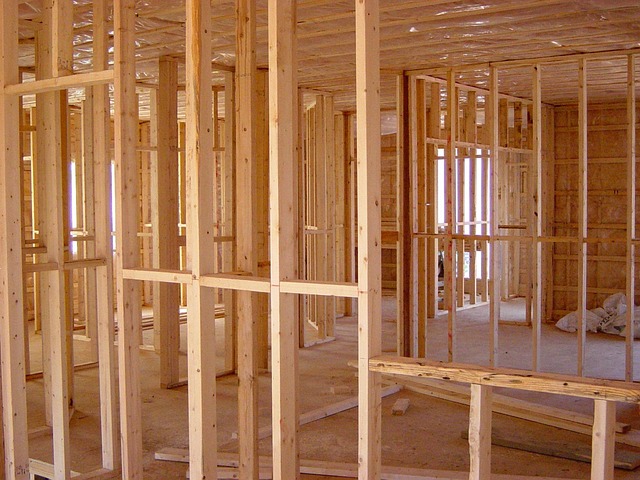Contractor financing for home improvements provides homeowners with flexible funding options like loans and lease agreements, easing financial strain during renovations. This method offers advantages over traditional bank loans, especially for those with limited credit history, as it has more flexible eligibility criteria. Contractors have various accessible funding options, from fixed-rate bank loans to HELOCs and credit cards. Understanding your creditworthiness through strong financial health, minimal debt, and accurate credit reports is key to qualifying. Effective financial management during projects involves creating detailed budgets, tracking expenses, addressing discrepancies, and staying informed to avoid overspending.
Looking to enhance your home but worried about the financial burden? Contractor financing for home improvements offers a practical solution, transforming your dream project into a manageable reality. This comprehensive guide unravels the intricacies of contractor financing, highlighting its numerous advantages. From understanding funding options to qualifying tips, we’ll walk you through each step. By the end, you’ll be equipped with the knowledge to embark on your home improvement journey with confidence and strategic financial management in tow.
- Understanding Contractor Financing for Home Improvements
- Benefits of Using Contractor Financing
- Types of Contractor Financing Options Available
- How to Qualify for Contractor Financing
- Tips for Effective Financial Management During Home Improvement Projects
Understanding Contractor Financing for Home Improvements

For many homeowners, tackling home improvement projects can be a dream turned reality. However, the financial aspect often stands as a significant hurdle. This is where contractor financing for home improvements plays a pivotal role. It offers a solution that allows property owners to fund their desired transformations without the immediate burden of substantial outlay.
Contractor financing specifically tailored for home improvements provides a range of options, from loans and lines of credit to lease agreements. These financial products are designed to cater to various needs and budgets. They enable homeowners to embark on projects like renovations, additions, or upgrades with greater flexibility and peace of mind, knowing that they can pay over time without compromising their financial stability.
Benefits of Using Contractor Financing

Using contractor financing for home improvements offers numerous advantages, making it an attractive option for many property owners. One of its key benefits is accessibility; it provides an easy and convenient way to fund projects without the traditional barriers of bank loans or credit lines. This is especially beneficial for those with limited credit history or lower credit scores, as contractor financing often has more flexible eligibility criteria.
It also streamlines the entire process, allowing homeowners to focus on their renovation goals rather than navigating complex financial procedures. With contractors offering financing options, clients can secure the necessary funds, complete their desired improvements, and potentially increase their home’s value. This method promotes a win-win situation where homeowners enhance their living spaces, and contractors build strong relationships with satisfied customers.
Types of Contractor Financing Options Available

When it comes to funding for home improvements, contractors have a variety of options available that can make their projects more accessible and affordable. One popular choice is traditional bank loans, which often offer fixed interest rates and structured repayment terms, making them a predictable financing option. These loans are suitable for both small-scale renovations and major remodelings.
Another common contractor financing method involves using credit cards or home equity lines of credit (HELOCs). Credit cards provide quick access to funds with relatively low minimum payments, though they carry higher interest rates. HELOCs, on the other hand, allow contractors to borrow up to a certain limit and repay over time, with the advantage of potentially lower rates than credit cards. These options cater to different contractor needs and budgets when it comes to home improvement projects.
How to Qualify for Contractor Financing

Qualifying for contractor financing for home improvements starts with understanding your creditworthiness. Lenders will assess your financial health by examining your credit score, debt-to-income ratio, and credit history. Maintaining a strong credit profile with timely bill payments and minimal outstanding debt significantly improves your chances. Regularly review your credit report for errors or discrepancies to ensure accuracy.
Additionally, demonstrating steady employment and stable income is crucial. Lenders seek consistent financial stability, so providing proof of income through pay stubs, tax returns, or bank statements can aid in qualifying. For contractors with seasonal work, it’s essential to show a history of successful projects and satisfied clients to showcase your reliability and ability to repay financing for home improvements.
Tips for Effective Financial Management During Home Improvement Projects

Managing finances effectively during home improvement projects is crucial, especially when utilizing contractor financing. Before starting any renovation or construction work, create a detailed budget outlining expected costs, including materials, labor, and any additional fees associated with your project. This step ensures you have a clear understanding of financial requirements and helps in securing the right contractor financing options.
Regularly track expenses against your budget throughout the project. Keep thorough records of all transactions, ensuring transparency. Promptly address any discrepancies or unexpected costs to prevent overspending. Effective financial management involves staying informed, keeping accurate records, and being proactive in budgeting for potential surprises that may arise during home improvements.
Contractor financing for home improvements offers a practical solution for those looking to enhance their living spaces. By understanding the various financing options, qualifying based on sound financial practices, and implementing effective management strategies, homeowners can successfully navigate the process. This approach ensures that dreams of improved homes become a reality without the added stress of financial strain. With the right contractor financing, transforming your home becomes not just a vision but an achievable goal.
